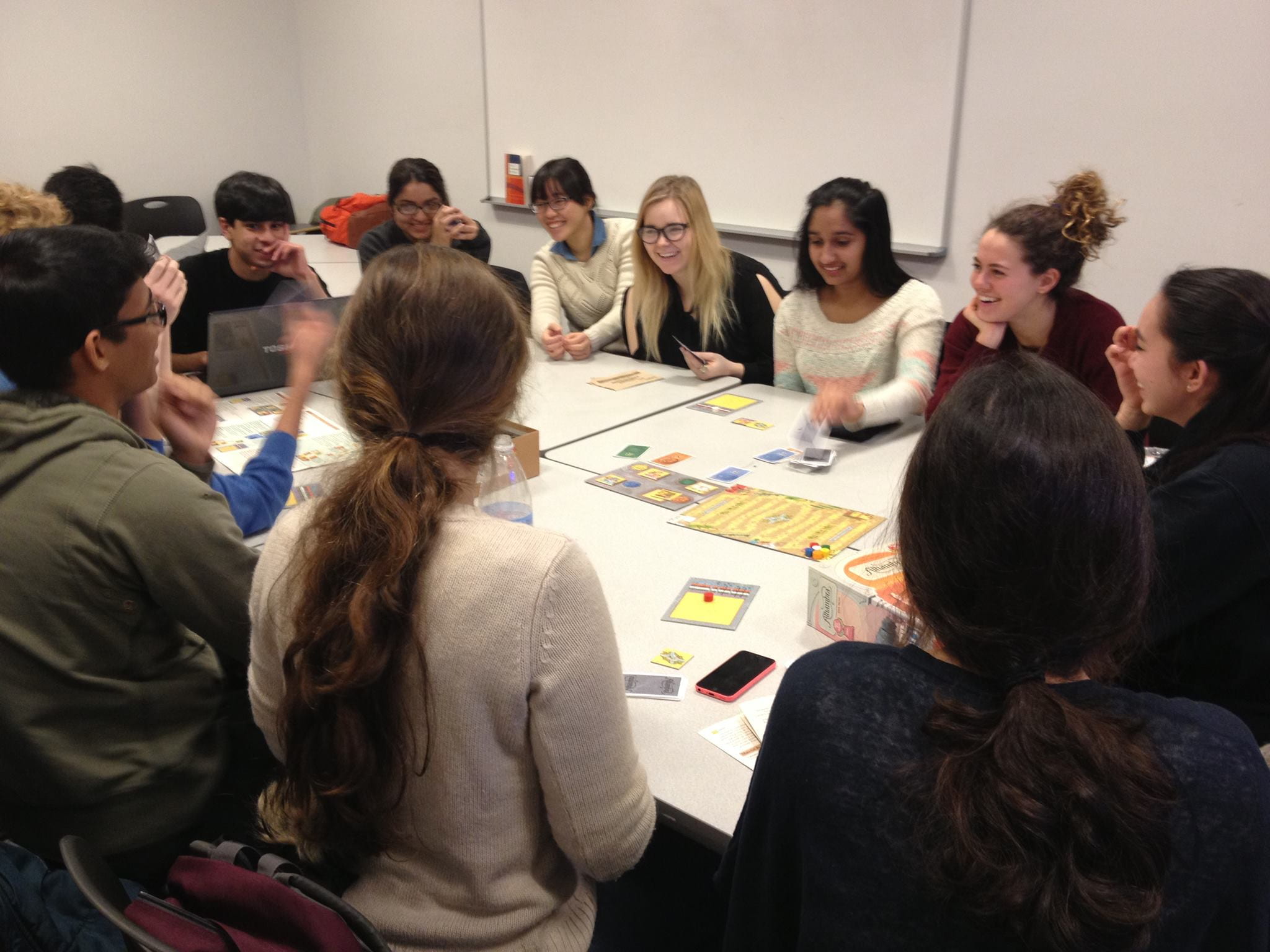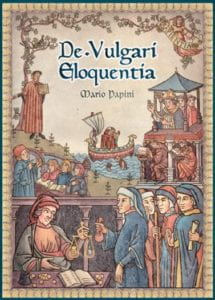
A few years ago because of weird end-of-term makeup scheduling, I found myself with two three-hour meetings in a week with my first-semester freshmen rather than the usual one three-hour meeting. It was long for them once a week, and I knew that neither they nor I was going to make it through two of those in the last week of the semester. So instead, for the final class meeting I had them play medieval-themed board games and evaluate some of the historical ideas that seemed to underpin them. That’s them playing The Alhambra: The Board Game. (There’s also Don Quijote: The Board Game and Toledo 1085: The German Card Game.)
 This year, I’m going to set aside a day for students in my history of Spanish class to play De Vulgari Eloquentia: The Board Game. It’s absurdly complicated and took three PhD-hours to set it up the first time I tried to test play it. I’ll have had them read and compare the prologues to that text and to Antonio de Nebrija’s Gramatica de la lengua castellana. Then I’ll have them play and evaluate the game as a tool for conveying ideas about language to a general public and then assign them to design their own game (or app) to do the same thing for either the Nebrija text or an Alfonsine one.
This year, I’m going to set aside a day for students in my history of Spanish class to play De Vulgari Eloquentia: The Board Game. It’s absurdly complicated and took three PhD-hours to set it up the first time I tried to test play it. I’ll have had them read and compare the prologues to that text and to Antonio de Nebrija’s Gramatica de la lengua castellana. Then I’ll have them play and evaluate the game as a tool for conveying ideas about language to a general public and then assign them to design their own game (or app) to do the same thing for either the Nebrija text or an Alfonsine one.
